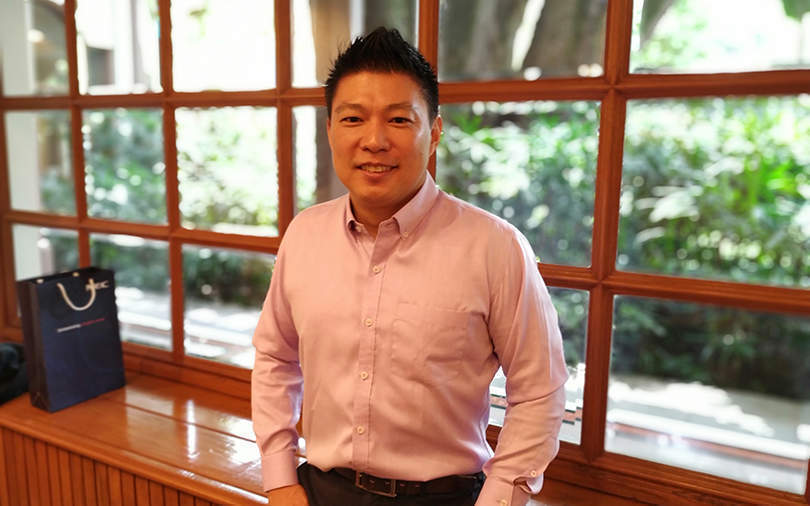
How NEC’s R&D labs in Mumbai, Bengaluru are rolling out solutions for global markets


Every month, about 10 million containers move up and down the busy Delhi-Mumbai Industrial Corridor (DMIC), a 1,500-kilometer stretch of roads and highways that run through multiple Indian states. Nearly a third of those containers are usually empty. That’s an estimated $1 billion in running costs (the container, labour and fuel) lost each year.
When this caught the attention of engineers at NEC Laboratories, the R&D arm of 120-year old Japanese information and communications technology multinational NEC, they got to work to find a solution.
NEC Labs, as the R&D arm is more commonly known, tracks over 95% of the containers that pass through the DMIC. The corridor is being developed with assistance from the Japanese government to transform the stretch into a manufacturing and trading hub and envisages investments at $100 billion by 2040.

"There is a huge demand for internal shipping movement along the route. What we are trying to do is understand the logistics involved and match the demand and supply. The unorganised sector information is scientifically processed using artificial intelligence (AI) to match so that it is useful for buyers and sellers," Akihiko Iketani, head of NEC Laboratories India, said in a conversation with TechCircle in Bengaluru.
The ideal situation is for the trucks to pick up import goods in containers and move to hinterland cities and towns and pick up export goods bound for the shipyard. However, one-third of the containers run empty on their way back to the ports. In a bid to better manage the demand-supply gap, NEC Labs provides information to industrial and manufacturing units along the corridor on what time the containers are available and how far the containers have to travel to the pick-up location, Iketani said.
Currently, the dwell time or the period when a container remains idle is nearly 50% in a month. NEC Labs is working to reduce this by optimising the timing of loading or unloading of containers so that trucks are not waiting at a pickup location or a drop-off location. Similarly, it has also implemented automated camera vision-enabled container clearing at the Mumbai port, which has reduced the wait times from between 2-5 minutes to just 10 seconds, he added.

Iketani took charge of the R&D operations here when NEC Laboratories India was established in June last year.
Globally, NEC spends around $2.6 billion on R&D every year. The Japanese firm has around 1.1 lakh employees across the world. In India, it has close to 6,000 people across offices in Gurugram, Mumbai, Bengaluru, Hyderabad and Chennai. It has also worked on Aadhaar for managing the central identity repository's face recognition technology.
India is home to one of the six NEC Labs that currently exist across the world. Globally, the laboratories employ close to 1,000 people with Japan housing half of the workforce. Iketani expects the India Labs, located in Mumbai and Bengaluru, to become the second largest in terms of headcount within a few years, surpassing the US which currently has around 100 people.

The India laboratories currently focus on AI-based solutions that can be rolled out in other emerging economies. It has also tied up with IIT Bombay for joint research on logistics and transportation, which may result in shorter delivery times and lower logistics costs.
"The Singapore labs (started in 2013) was supposed to be the entity that served and acted as a platform for innovations for emerging economies. But we realised that we need to come to India for that. Now we plan to extend the solutions developed here to other parts of the world," said Iketani, who headed the Singapore operations before heading to Mumbai to start the India unit.
The labs create new ideas and solution concepts and transfer them to NEC's centre of excellence, which works on the concepts to develop products and solutions. "What we are trying to do is analyse data and identify the problems, so that we can create a hypothesis for it," Iketani said. NEC also tries to work with customers and partners to build an ecosystem based on its service platform and Big Data.

Redmond-headquartered software giant Microsoft’s R&D unit, Microsoft Research Lab also works on similar lines.
NEC Labs, Iketani said, is also working on improving the efficiency of Ahmedabad's Bus Rapid Transit (BRT) and has seen early results in the form a 10% growth in ridership and a 20% increase in ticket sales. The labs helped identify the travel patterns of users across different parts of the city as well as reduced wait times among other parametres it identified.
Iketani is also now increasingly working with the startup and developer ecosystem to jointly explore new solutions for commercialisation. As the Indian entity continues to rapidly expand, Iketani has set his eyes on more sectors, other than transportation and logistics, including fintech, healthcare, education and agriculture.

